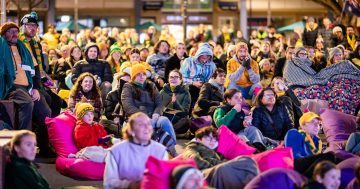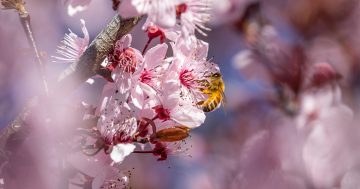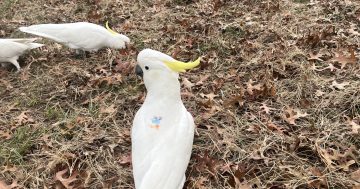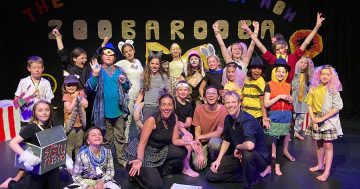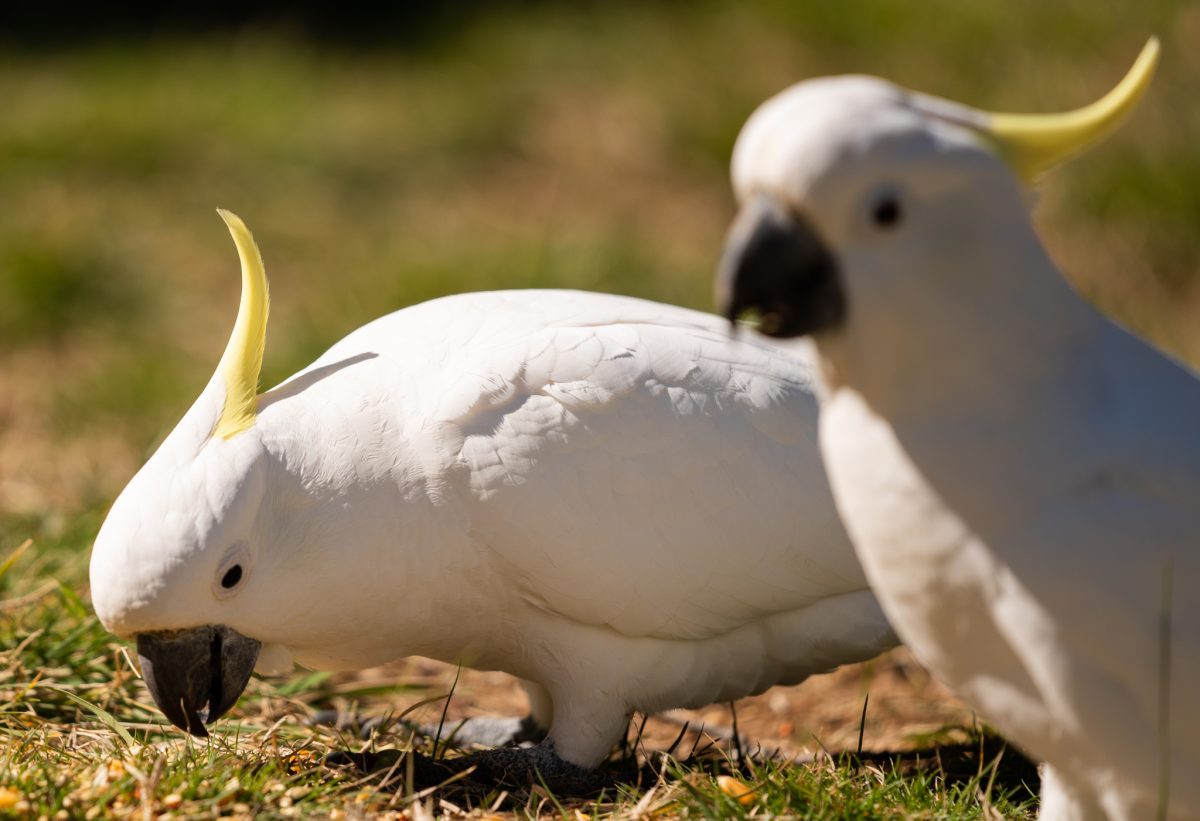
When you look at this photograph, do you see a Cacatua alba, a sulphur-crested cockatoo, a cockie, a nuisance who chews through bits of your fence – or just a galah? Photo: Tracey Nearmy, ANU.
Do you abbreviate the names of animals and plants or prefer the bang of rhyming slang?
Well, the Australian National Dictionary Centre (ANDC) within the National University of Australia wants to hear from you.
Each year, the ANDC calls on the public to suggest new words for the dictionary – and this year’s focus is on plants and animals.
They can be as simple as gladdy for gladioli or wedgie for wedge-tailed eagle to the less flattering flying cane toad (Indian myna bird) to bushman’s clock (kookaburra), sky rat (seagull) or as cool as Elvis Fish (leatherjacket) or that slithery fellow, Joe Blake (snake).
“What we’re after are those nicknames people used to use or still use today that haven’t made it into written sources yet,” ANDC senior researcher Mark Gwynn said.
“It’s a fun thing for everyone to do because we all share the language. We can’t do it all by ourselves, that’s why we rely on contributions from the public.
“We’re particularly interested in Canberra-specific ones. I heard the other day about a tree people call the Itchy Bomb Tree. Apparently it has pods on it that kids throw at each other – they’re itchy.”
Mr Gwynn said not all contributions could be used in the dictionary – they must be Australian. But they can have connections to overseas because sometimes we borrow terms and use them in a different way.
“Like we call old gum trees widow-makers because their branches can fall off and hurt people. But in England, most of their old trees are called the same.”
Mr Gwynn said once they’d ruled out the repetition – there are already way more votes than needed for the poor old ibis (bin chicken, tip turkeys or dump chook) – the real work of selecting what made it into the dictionary began.
“One of my favourites is for the willy wagtail, djitty djitty, because it sort of sounds like what it is,” he said. “It’s been widely used in social media over in Perth apparently. We think it originally came from the Noongar language and can be tracked back to the 1920s.

Senior researcher at the Australian National Dictionary Centre, Mark Gwynn, knows his onions when it comes to Aussie slang. Photo: Supplied.
“It is one of those imitative words that has made it into general usage. Like the Gang Gang, which also sounds like what it is.
“The kookaburra is another classic example. We think it may have come from the Wiradjuri language from NSW, maybe picked up from early spellings.”
Mr Gwynn said the response to these yearly callouts for dictionary word suggestions was always good because “people love to talk about language”.
“It takes them back to happy times, to childhood, remembering words their parents used.”
He said as Australians, we were well known for our use of colloquialisms and slang, with this trend extending into our natural environment.
“From the terrifying saltwater crocodile undergoing the classic Aussie abbreviation with `–y’ suffix to become saltie, to the tiny harmless woodlouse being called the slater or butchy boy, there’s probably not too many creatures that have missed out on a nickname,” Mr Gwynn said.
“We would love to add more of these colloquialisms to our record of Australian English. People might be surprised that some of these types of informal naming are quite widespread and in some cases, quite old. As a kid I certainly knew a few names for different cicadas including the greengrocer and black prince which turn out to have a long history in Australian English.”
The ANDC runs an appeal each year for the public to help build on its collection of Australian words and their origins.
“We look forward to seeing some new contributions, but we’re also interested in finding out if some of the older colloquialisms are still out there,” Mr Gwynn said.
“Are people still calling blowflies dunny budgies, and when was the last time you heard someone say they were having underground mutton [rabbit] for dinner?”
There’s been no word yet whether budgie smuggler will get a look-in.
Contributions to this year’s appeal can be made through the ANDC Word Box feature or ANDC contact page.












